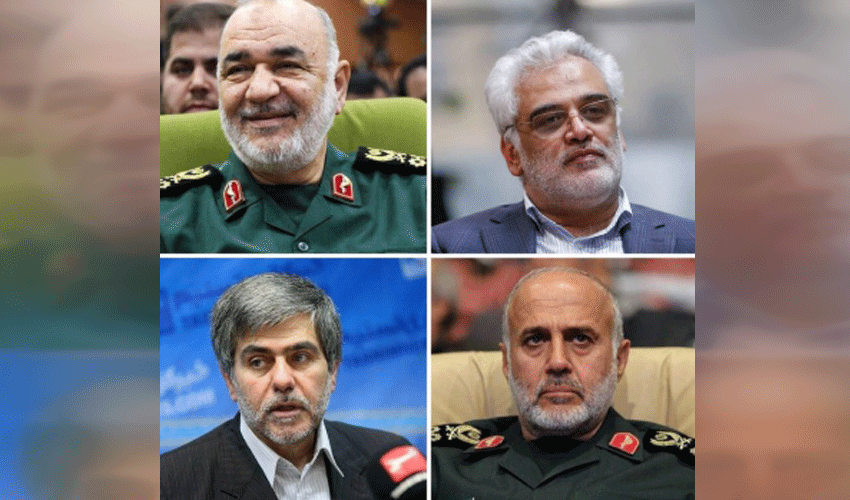Israel attacks Iran in what officials called a long-term military campaign aimed at crippling Tehran’s nuclear program. On Friday, Israel struck nuclear plants, missile production units, and military personnel across multiple locations in Iran. The operation was launched with the stated goal of stopping Iran from developing atomic weapons.
Reports from Iranian media and eyewitnesses confirmed explosions at several sites. One of the major blasts took place at the Natanz uranium enrichment facility. The situation on the ground grew tense as Israel announced a nationwide emergency, anticipating Iranian retaliation.
In one of the deadliest blows, Major General Hossein Salami, Chief Commander of the Islamic Revolutionary Guard Corps (IRGC), was killed. According to IRNA, the IRGC headquarters in Tehran was also hit. Several children reportedly died after a missile hit a residential area in the Iranian capital.
Prime Minister Benjamin Netanyahu appeared in a video message shortly after the operation began. “We have entered a defining moment in Israel’s history,” he declared. “Operation Rising Lion has begun. It will continue until the Iranian threat to our survival is eliminated.”
Iran’s Supreme Leader Ayatollah Ali Khamenei condemned the assault, calling it a “bloody crime.” He warned that Israel would face “a bitter fate” as a result of its aggression.
A senior Israeli military official stated that they were hitting “dozens” of targets. These included nuclear enrichment sites, weapons production zones, and air defense installations. The source claimed Iran could produce 15 nuclear bombs in a matter of days.
Meanwhile, Mossad reportedly carried out several covert sabotage missions inside Iran. According to Axios, the goal was to cripple missile infrastructure and air defense systems, weakening Iran’s ability to strike back.
Iranian state media confirmed the deaths of two nuclear scientists, Fereydoun Abbasi and Mohammad Mehdi Tehranchi, in attacks on Tehran. In total, at least six scientists and several civilians were reported killed.
Ben Gurion Airport in Tel Aviv was closed indefinitely. Israel’s air defense systems were placed on maximum alert, expecting an immediate counterattack. Defense Minister Israel Katz stated, “We anticipate missile and drone strikes from Iran very soon.”
Chief of Staff Eyal Zamir confirmed that tens of thousands of soldiers had been deployed to various borders. “We are fighting a historic battle. It is a critical moment to stop an existential threat from an enemy bent on destroying us,” he said.
Israel’s Foreign Ministry reported that Minister Gideon Saar was making urgent diplomatic calls to global counterparts.
The United States denied any involvement in the Israel attacks on Iran. President Donald Trump was set to lead a National Security Council meeting on Friday morning. Although Washington has long been a close ally of Tel Aviv, US Secretary of State Marco Rubio stressed, “Israel acted alone. Our main concern is protecting our personnel.”
Despite this, an Israeli official told public broadcaster Kan that Israel had consulted Washington before launching the operation. Iran’s military spokesman accused both Israel and the US of being responsible and vowed severe retaliation.
The US State Department issued a security alert, urging all American diplomats and their families in Israel to shelter in place.
The attack rattled financial markets. Oil prices surged, gold gained, and stock markets dropped in early Asian trading.
Nuclear negotiations between the US and Iran were scheduled for Sunday in Oman. However, hopes for any progress appeared dim. Talks had stalled for weeks before the strikes. A US intelligence source revealed there was no new evidence that Iran had resumed its weapons program, which was stopped in 2003. Still, intelligence suggested Israel had been preparing to launch a pre-emptive strike.
The Pentagon was reportedly developing evacuation plans for American civilians in case the situation escalated further.
World Reactions:
President Trump said, “Iran must not obtain a nuclear bomb. We hope to return to diplomacy, but this is a serious moment. Some leaders will not survive this.”
Qatar issued a harsh condemnation. It called the strikes “a violation of Iran’s sovereignty” and “a breach of international law.”
The United Arab Emirates echoed the concerns, calling for restraint and expressing worry over regional instability.
Australian Foreign Minister Penny Wong said, “We are deeply concerned by the rising tensions. The region is already fragile.”
New Zealand’s Prime Minister Christopher Luxon labeled the event as “unwelcome.” He warned of high risks of miscalculation.
Japan’s Chief Cabinet Secretary Yoshimasa Hayashi said his country was making diplomatic efforts to prevent further escalation. He also emphasized the safety of Japanese citizens in the region.
The Israel attacks on Iran have pushed the region to the brink of a wider conflict. The coming days will determine whether diplomacy can return or if the world will see a new war in the Middle East.

